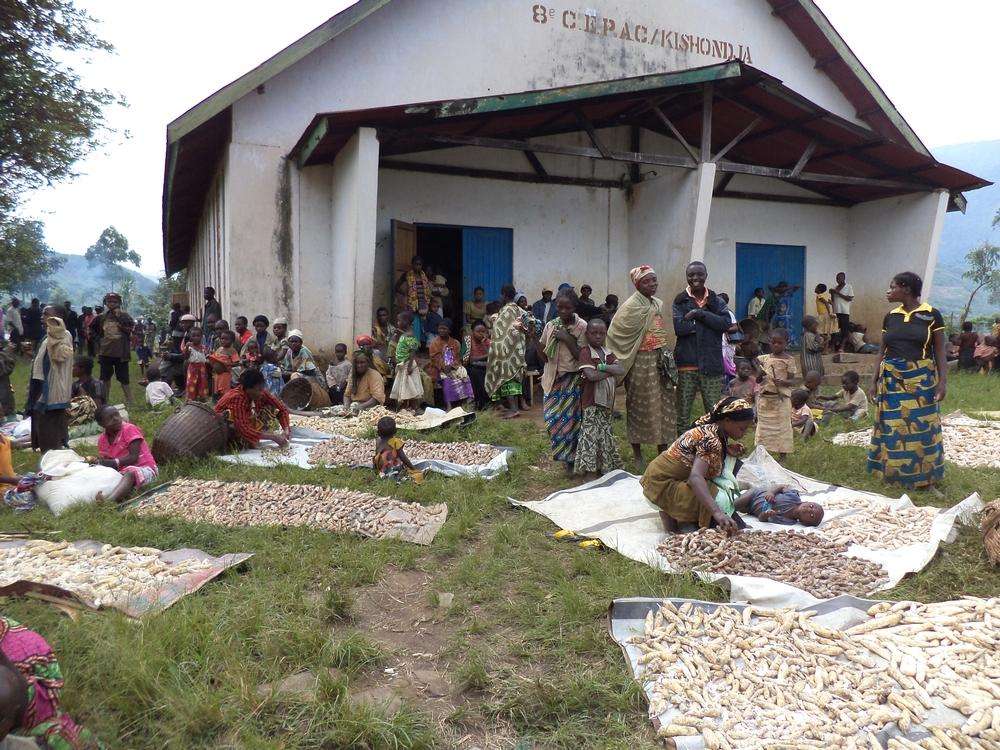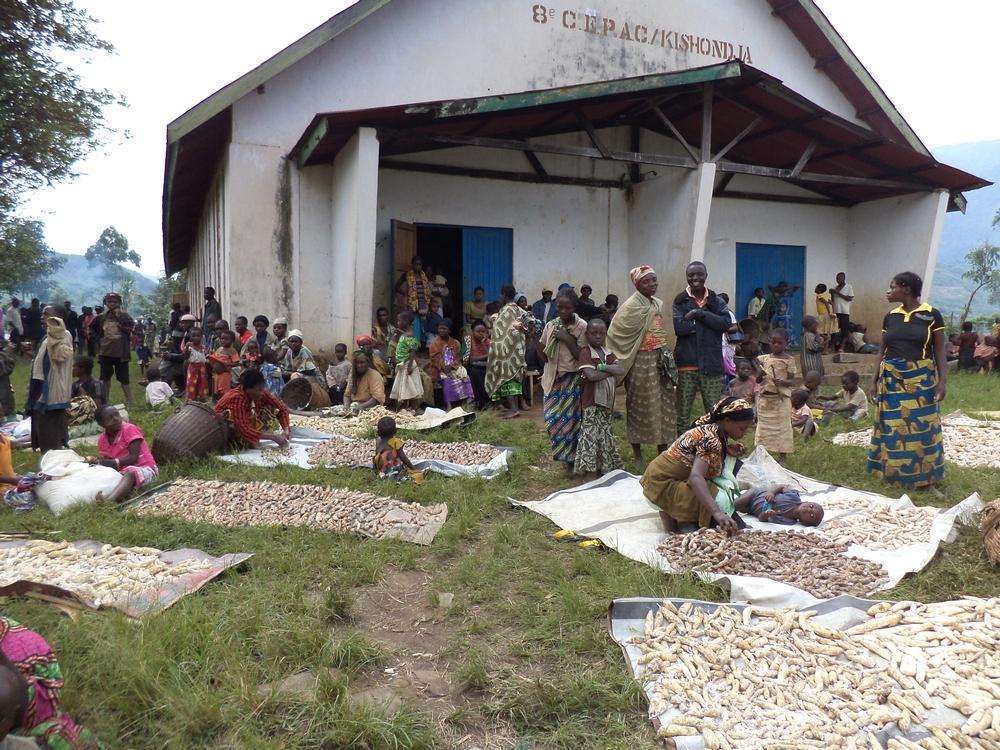On Wednesday, April 30, new fighting broke out in Nyabiondo, in the Masisi territory of Democratic Republic of Congo (DRC)'s North Kivu Province. The conflict between the armed forces of the Democratic Republic of Congo (FARDC) and the Alliance des Patriotes pour un Congo Libre et Souverain (APCLS) resulted in many deaths—at least one of them civilian—and caused the displacement of thousands of people. More than a million displaced people already live in North Kivu.
Two thousand displaced people are living in various sites across Nyabiondo, including at the town’s health center, where Doctors Without Borders/Médecins Sans Frontières (MSF) is working to support the Ministry of Health to provide health care. Here, MSF medical officer Emmanuel Lampaert reflects on his past two months in DRC.
When I arrived in Nyabiondo, shortly after the fighting began, there were people surrounding where we are based. We took in as many as 700 people, including entire families. People were afraid because of the fighting. They sought refuge in places they saw as safe: our house, the health center, the church, and with other international organizations.
We attended to the most urgent things first, trying to ensure basic hygiene by installing latrines. After a few days the families started to return home. It took some time after the confrontations stopped for people to start feeling safe. The feeling doesn’t automatically come as soon as the sound of gunfire ends. In addition, houses had been looted and burned, and armed men were occupying hundreds of dwellings. People needed time to feel safe enough to go home.
How are people coping?
It’s an untenable situation. When we started our project at the general hospital in Masisi in 2007 it was because of the fighting. For two months, the situation has been very volatile. There are more and more confrontations in the northwest part of the region. Some families in Nyabiondo have had to flee four times in two months. They are tired; they are sick of fleeing. They are scared as well. Every day they hear helicopters flying over the area; the houses are looted . . . All this is extremely traumatizing for people.
What are the health risks?
When people flee into the bush they have very little access to health care. It is reflected in our figures: in January [2014] we treated 49 patients with severe malaria, 59 in February; but in March, due to the fighting we admitted only 19 people.
People do not dare come to the health center or to the mobile clinic. They live in the bush, without safe drinking water and without shelter to protect them from the rain. The risk of developing illnesses for which they cannot be treated is great. We fear the most for the children who catch malaria in the bush and cannot get the treatment they need.
Have many people been wounded?
We treated eight people wounded in fighting on April 30, whom we transferred to the general hospital in Masisi. There have also been victims of sexual assault. It’s unfortunately a reality in the territory of Masisi. We know that not all [victims] seek help, or [do so] only later when the fighting calms down. They should come in within 72 hours for proper treatment and to prevent the risk of AIDS transmission, for example.
When they come we provide care, we treat the injuries and offer psychosocial support. People who are victims of sexual assault must have access to quality health care without fear of reprisals or rejection. We constantly remind all the combatants that the health centers and hospitals are neutral ground—people must be able to come to seek help without fearing for their safety.
The main things that we treat people for are the indirect effects of the violence—that is the essence of our work. People cannot see a doctor in time when they develop illnesses or live in conditions that promote the development of illnesses.
What are the challenges for MSF?
Since mid-February, recurrent fighting has taken place in the northwest part of Masisi, and we are really worried about the local community. Given the security conditions very few NGOs are present. We are the only organization providing health care. The needs are immense, mainly for primary health care.
The situation in the territory of Masisi remains extremely serious and worrying. All parties to the conflict must be able to guarantee access without risk so that humanitarian NGOs can continue to work in the area and provide care to people that need it.
Between January and March 2014, MSF conducted 21,789 consultations at the general hospital in Masisi and the health center in Nyabiondo, and 3,395 consultations through mobile clinics. MSF has been supporting the general referral hospital in Masisi since 2007, where it provides primary and secondary treatment free of charge. MSF also sets up mobile clinics in the region as needs develop.





